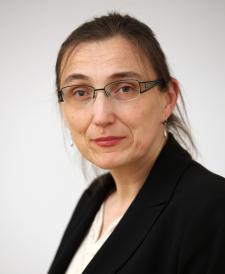Heisenberg Professorship strengthens Oriental Research at the University of Halle

"I’m very pleased that we have been able to attract Cornelia Horn to take up this one-of-a-kind professorship in Germany. The Institute of Oriental Studies gains an outstanding and multifaceted researcher whose work examines how Oriental Christians impact the cultural and social development of the societies in the Near East," says Rector Sträter. The DFG’s funding of the professorship strengthens the so-called small disciplines that are under pressure around the country from funding cuts. "Together with our network partners at the universities of Jena and Leipzig, we are engaged in intensive conversations on how we can join efforts in the field of Oriental Studies and attract relevant third-party funding."
Cornelia B. Horn, born in 1968, studied classics, philology, philosophy, Oriental languages, church history, computer-supported linguistic text analysis and theology in Germany, Liechtenstein, Switzerland, and the United States. She also devoted much of her time to the study of the Arabic, Syriac, Ethiopic, Hebrew, Armenian, Georgian, and Coptic languages. In 2001 she obtained her PhD with a dissertation on the theological controversy surrounding Peter the Iberian in fifth-century Palestine. In 2011 Horn obtained her habilitation from the University of Tübingen for further work on the reception of this important early Christian ascetic and theologian, and for work on the role and experience of women and children in the cultural and historical framework of the Christian Orient. Following several university appointments in the United States, Dr Horn became a Humboldt Fellow at the Humboldt University of Berlin and the University of Regensburg. She began conducting research at the Freie Universität Berlin as a Heisenberg Fellow in 2014. The DFG has converted this fellowship into the Heisenberg Professorship "Language and Cultures of the Christian Orient" at MLU. Once the DFG funding expires in 2019, the professorship will be taken over by the university and made permanent.
Researchers of the Institute of Oriental Studies at MLU examine Judaism, Christianity, and Islam in their contexts in the Orient as independent cultural and religious communities. They also study their relationships, commonalities, and conflicts with one another. One focus of Dr Horn’s future work is in the area of historical-philological studies. Another focus is on creating new forms of access to the cultural and literary sources of the Christian Orient using the methods of digital humanities. A third focus of her work is on numerous aspects of the complex topic of migration and integration, including the role of Oriental Christians in society in Europe and the Near East, and the integration of Oriental Christians living among western Christians, Jews, and Muslims in the Near East and in Europe.
Since 2006 the DFG’s Heisenberg Professorship programme provides excellent scientists, who are eligible for appointment, with a DFG-funded position for a maximum of five years and, as part of a tenure track, with subsequent unlimited-term employment at the respective university. The DFG approves around 20 of these professorships every year.

